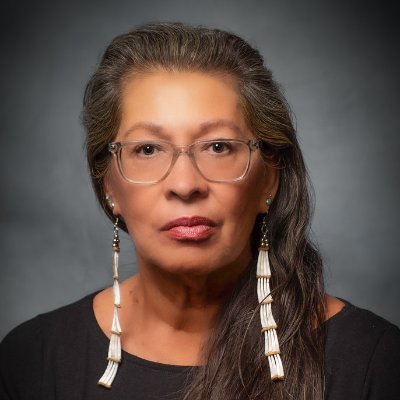Guest Opinion. The Arctic National Wildlife Refuge is a pristine wilderness, and it is sacred land. Since time immemorial, it has sustained the Gwich’in people, who call the coastal plain “Iizhik Gwats’an Gwandaii Goodlit” -- the Sacred Place Where Life Begins. It’s also home to the Iñupiat, whose culture, health, and subsistence depend on the balance of this fragile ecosystem.

Now, that balance is under grave threat.
Fossil fuel companies, backed by their right-wing political allies, want to drill the Arctic Refuge. But doing so would violate tribal sovereignty, desecrate sacred spaces, and put Alaskan Native ways of life at risk. It would also threaten the survival of species like the Porcupine caribou herd, which the Gwich’in rely on both spiritually and for subsistence. Disrupting the caribou’s calving grounds could trigger irreversible ecological and cultural loss.
The Arctic is uniquely at risk. It is warming four times faster than the global average, triggering melting permafrost, rising seas, and the release of trapped methane.
Drilling here would release carbon from the broken tundra, threatening the existence of a range of wildlife, including polar bears, snowy owls, musk oxen, and millions of migratory birds, and endangering the stability of our entire climate system.
This is about protecting the land -- and it’s about honoring traditional lifeways, keeping promises, and protecting the future of Turtle Island. The Arctic Refuge is a rare and sacred space, one of the last truly wild places on Mother Earth. If it is lost to oil rigs and pipelines, we will not be able to get it back.
The Gwich’in and Iñupiat peoples have defended this land for generations. Now, they’re asking us to stand with them. Not only is protecting the Arctic Refuge crucial for the climate, it’s a matter of justice, tribal sovereignty, and survival. Let the Sacred Place Where Life Begins remain sacred.
Judith LeBlanc (Caddo), executive director of Native Organizers Alliance Action Fund, whixh is a partner to Native Organizers Alliance.
More Stories Like This
The SAVE America Act Threatens Native Voting Rights — We Must Fight BackThe Presidential Election of 1789
Cherokee Nation: Telling the Full Story During Black History Month
Jesse Jackson Changed Politics for the Better
Native News Online at 15: Humble Beginnings, Unwavering Mission
Help us defend tribal sovereignty.
At Native News Online, our mission is rooted in telling the stories that strengthen sovereignty and uplift Indigenous voices — not just at year’s end, but every single day.
Because of your generosity last year, we were able to keep our reporters on the ground in tribal communities, at national gatherings and in the halls of Congress — covering the issues that matter most to Indian Country: sovereignty, culture, education, health and economic opportunity.
That support sustained us through a tough year in 2025. Now, as we look to the year ahead, we need your help right now to ensure warrior journalism remains strong — reporting that defends tribal sovereignty, amplifies Native truth, and holds power accountable.
 The stakes couldn't be higher. Your support keeps Native voices heard, Native stories told and Native sovereignty defended.
The stakes couldn't be higher. Your support keeps Native voices heard, Native stories told and Native sovereignty defended.
Stand with Warrior Journalism today.
Levi Rickert (Potawatomi), Editor & Publisher

